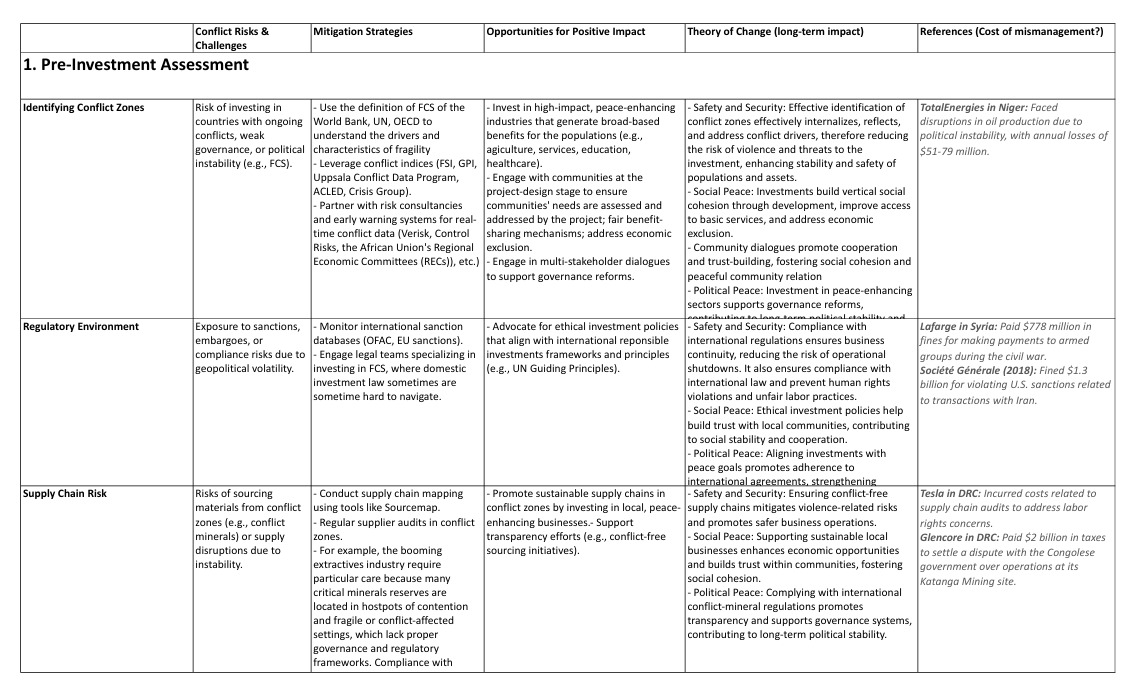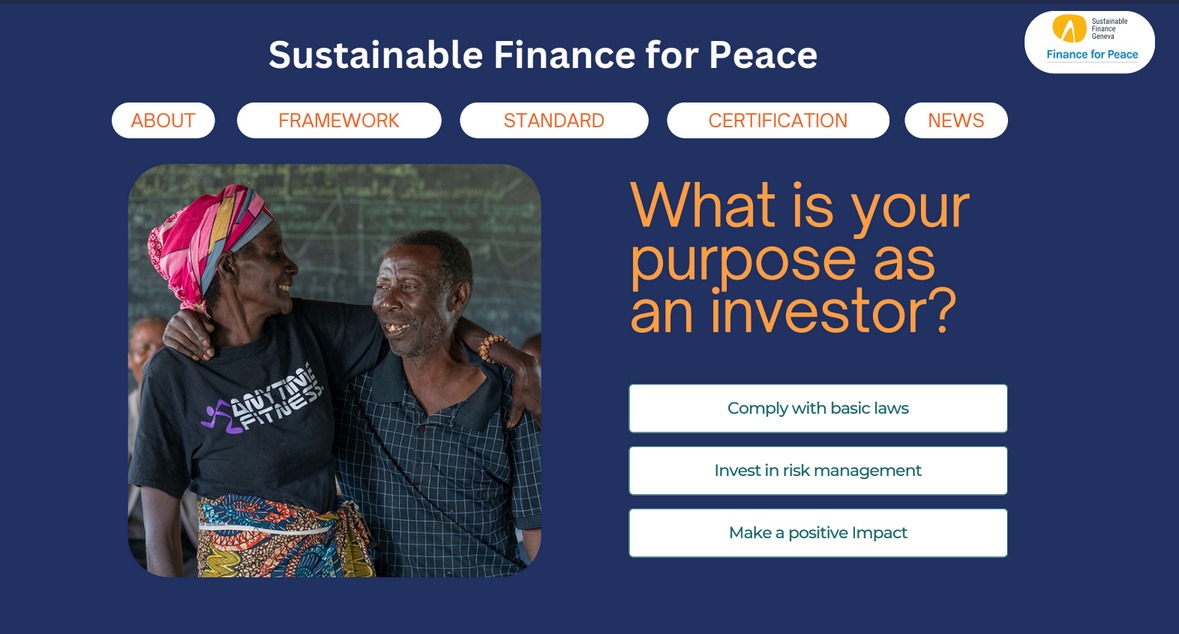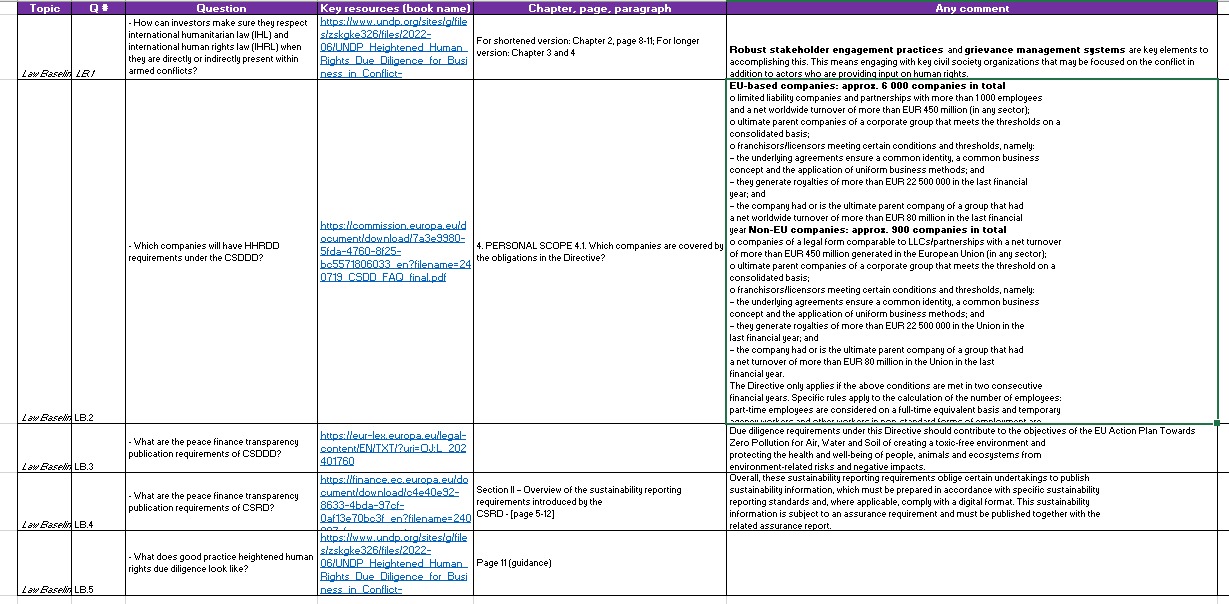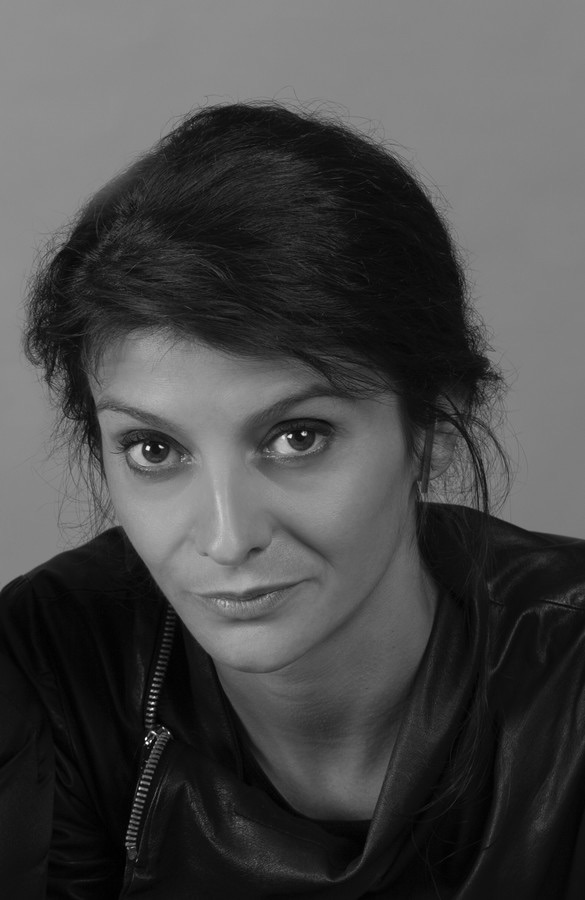Sustainable Finance Hack Promotes Hackathons for Financial Institutions to Tackle the 'Great Acceleration'
SDG Solution Space, Avenue de Sécheron 15, 1202 Geneva — The Sustainable Finance Hack, organized by Open Geneva, featured a challenge aimed at promoting hackathons to financial institutions as a solution to tackle the 'Great Acceleration' of the economy and society. The challenge took place on Oct 12-13 at the SDG Solution Space in Geneva and was led by a group of practitioners in finance, students, and researchers from the University of Geneva.
The key idea behind the challenge was to address the adaptation problems faced by financial institutions, such as obsolete hierarchical structures that hinder innovation and employee motivation. The challenge proposed that Open Geneva could provide coaching and tools for financial institutions to organize hackathons focused on finding solutions to grand challenges.
Open Geneva's approach involved seeding change with one hackathon organized for the financial institution. They would frame concrete problems associated with a general challenge, recruit key participants and stakeholders, organize the hackathon, and share knowledge for the institution to replicate similar events.
The challenge resulted in a concrete roadmap for marketing hackathons within financial institutions to embrace the 'Great Acceleration'.
14.10.2024, 10:50 by Thomas Maillart
Sustainable Finance Hack: Solution for Challenge 5 on Diversity and Inclusion
Sustainable Finance Hack — During the Sustainable Finance Hack, our team presented a possible solution for Challenge 5, focusing on how gaps in diversity and inclusion negatively impact productivity. Our innovative tool measures Diversity Index, Inclusion Index, and Equity Index by considering a range of measurable variables such as age, gender, nationality, and more. We recognized the challenges in correlating profitability with the indices and shifted our focus to measuring productivity as a more efficient and reliable way to gauge impact.
Our team's solution aims to provide a general framework that can be adapted and mapped to an organization's HRIS (Human Resources Information System), allowing companies to customize the tool to their specific needs and goals. With a focus on flexibility and adaptability, the tool offers a user-friendly approach for organizations to enhance diversity, inclusion, and equity within their workforce.
Stay tuned for more updates on this promising solution as it continues to evolve and make a positive impact on sustainable finance practices.
12.10.2024, 15:52 by Rute Cardoso



Sustainable Finance Hack: User Guide for Conflict Risk in Investment Decisions
Global — The Sustainable Finance Hack presented a user guide designed to support investors to incorporate conflict risks into investment decisions and maximizing their impact on peace. The framework aims to guide investors in assessing, measuring, and understanding risks in fragile context, providing recommendations for mitigation and the realization of peace outcomes.
Global Risk Indices: The framework utilizes sources developed by peace and conflict experts, like the Fragile States Index (FSI) and Global Peace Index (GPI) to classify conflict severity and identify high-risk areas. For example, in conflict zones like South Sudan, risks to infrastructure, especially in sectors like oil extraction, are highlighted.
Sector-Specific Assessments: By tailoring conflict risks to specific industries, the framework addresses key challenges across industries, such as extractives, agriculture, and manufacturing/technology sectors.
Regulatory Framework for Sanctions: Investors are informed about sanctions regimes in place through monitoring databases like OFAC, EU, and UN to ensure compliance. The framework highlights the impact of sanctions on divestment decisions, such as in Iran.
Tailored Recommendations: Personalized recommendations are offered based on investor goals, including mitigating risks through ESG tools and contributing to peace by promoting peace-positive approaches that embed high-impact peace-enhancing mechanisms in projects through strengthened community ownership, buy-in, social cohesion and access to livelihoods.
The user guide not only helps investors navigate conflict risks but also encourages them to be a force for good in fragile or conflict-affected settings, supporting local development and access to livelihoods.
12.10.2024, 15:55 by Delamare leonore
Empowering Communities to Address Poor Digital Infrastructure in Remote Areas
SDG Solution Space, Geneva — The Sustainable Finance Hack at the SDG Solution Space in Geneva featured a challenge focused on tackling the problem of poor digital infrastructure and internet connectivity in remote areas. The challenge, proposed by Giga, aimed to empower communities to find solutions and connect them via a platform. Participants, including a diverse group of students and professionals, collaborated to address factors such as poor infrastructure and expensive data plans.
During the challenge, participants analyzed the problem and brainstormed ideas, ultimately choosing to create a platform where communities can share practices, adapt them to their needs, and scale them as needed. The approach of empowering communities and connecting them via a platform was selected to efficiently connect people facing similar issues worldwide, especially those with limited mobility.
The challenge took place from October 11 to October 12, 2024, and involved a mix of first-time hackers and experienced hackathon participants.
12.10.2024, 15:34 by Kerstin Preuschoff
Introducing Fincheck: Empowering Financial Professionals with AI Precision
Sustainable Finance Hack — The Sustainable Finance Hack recently witnessed the unveiling of Fincheck, a groundbreaking solution aimed at empowering employees for the AI revolution. The challenge addressed by the team behind Fincheck was the critical issue of minimizing human errors in financial institutions. Small mistakes in financial calculations can have significant consequences, from lost revenue to compliance breaches.
Fincheck, an AI-powered real-time fact-checker, not only detects errors but also enhances decision-making for financial professionals such as portfolio managers and analysts. It acts as a smart assistant, aiming to empower individuals rather than replace them.
One of the key features of Fincheck is its ability to run in the background, cross-verifying calculations in real time and highlighting discrepancies at the end of the process. But what sets Fincheck apart is its innovative approach:
1. Risk Prediction: Utilizing AI to analyze patterns and predict potential risks before they occur, Fincheck offers a proactive solution to error prevention.
2. Adaptive Learning: By learning from each employee's workflow, Fincheck provides personalized suggestions to improve accuracy and efficiency, evolving over time to enhance individual performance.
3. Interactive AI Collaboration: Employees can engage with Fincheck by asking questions and seeking explanations, turning it into an AI-powered decision assistant that refines their thinking process.
4. Compliance Support: In a landscape of evolving financial regulations, Fincheck acts as a real-time compliance checker, flagging potential legal issues to reduce risk and maintain operational integrity.
Moreover, Fincheck provides a confidence score for its results, allowing employees to balance AI input with their expertise, emphasizing the importance of human judgment.
In conclusion, Fincheck not only enhances accuracy and ensures compliance but also fosters a collaborative environment where human intuition and AI precision work hand in hand. It envisions a future where employees and AI seamlessly cooperate to safeguard financial integrity.
12.10.2024, 15:27 by Challenge #2
Empowering Global Connectivity: The COCO Community Connect Platform
Geneva — COCO (Community Connect Platform) was launched in Geneva on 12 October 2024 as a collaborative platform designed to empower communities worldwide by connecting those that have successfully overcome connectivity challenges with those that are still struggling. The platform aims to break down barriers to global connectivity by facilitating knowledge sharing, collaboration, and targeted assistance.
COCO addresses obstacles such as lack of infrastructure, high costs of technology, limited digital literacy, and political and regulatory hurdles, which have been limiting access to vital resources like education and healthcare for billions of people.
The platform features Best-Practice COCOpreneurs who share success stories, attract funding, and provide mentorship opportunities, as well as COCOS in Need who voice challenges, access solutions, and benefit from COCRowdfunding for funding projects and solution matching.
For further information, contact COCO at info@cococonnect.org.
12.10.2024, 15:07 by Afroditi Anastasaki
Innovative Role Play by Group 3 at Sustainable Finance Hack
Sustainable Finance Hack — During the Sustainable Finance Hack, group 3 showcased a unique role play to explain their project on blockchain for humanitarian and sustainable action financing. The group members effectively portrayed different stakeholders, including impact investors, the bank, the auditor, and the NGO party, highlighting their roles in blockchain financing. The role play was commended for its clarity and expressiveness, with the use of papers to represent money and checks adding a creative touch to the presentation. While the specific aspects of blockchain financing were not detailed, the overall theme focused on leveraging technology for financing humanitarian and sustainable initiatives.
12.10.2024, 14:59 by Delamare leonore
Feedback on Group 5's Presentation at the Sustainable Finance Hack
Sustainable Finance Hack — During the Sustainable Finance Hack, group 5 delivered an engaging and funny pitch, although the main point of their project on addressing gaps in diversity and inclusion's impact on profitability was not clearly communicated. The presentation focused more on their thought process and included a fun graph depicting their productivity levels throughout the hackathon. However, the graph did not directly relate to their project's solution. Group 5 explained their brainstorming process through the graph, but it did not effectively showcase their solution for addressing diversity and inclusion gaps.
12.10.2024, 14:48 by Delamare leonore


BlockHack: Leveraging Blockchain for Humanitarian Action
Geneva — In the heart of Geneva, the #SustainableFinanceHackathon brought together 5 young innovators to explore the potential of blockchain for financing humanitarian causes. The challenge focuses on leveraging blockchain technology to address one the biggest NGOs challenges: funding. The goal is to build a platform that connects investors with social impact projects.
The team worked hard to demonstrate the immense potential of decentralized finance to revolutionize humanitarian funding. By enhancing transparency, reducing costs, and accelerating disbursement processes, blockchain can ensure that vital funds reach those in need more effectively.
We have worked on different aspects of humanitarian funding:
- Transparent Giving: a blockchain-based donation enables real-time tracking of funds, using smart contracts to ensure that donations are used as intended.
- Impact DeFi: a platform that connects impact investors with NGOs using smart contracts to automate the investment process, reducing intermediary fees and enhancing transparency.
Stay tuned for updates on the projects and the future of blockchain for humanitarian action!
12.10.2024, 15:31 by Emilie-Alice Fabrizi
Sustainable Finance Hack: Addressing the Challenge of Financing Digital Infrastructures for Schools Worldwide
SDG Solution Space — The Sustainable Finance Hack at the SDG Solution Space on October 11-12 brought together a diverse group of participants to tackle the challenge of financing digital infrastructures for schools worldwide. The team, consisting of students from the University of Geneva, professionals from international organizations, and the private finance sector, collaborated to address the lack of connectivity and funding in underserved communities.
During the hackathon, participants shared ideas and perspectives, ultimately choosing a key direction and establishing a roadmap for the implementation of a funding platform to support digital infrastructures for schools. The challenge highlighted the importance of bridging the gap between investors and underserved communities to ensure access to quality education.
On the platform communities have the possibility to submit projects and compete for funding. The funders are the Internet service providers (ISP). ISP want to contribute to building digital infrastructures by making donations. People in general can also contribute to as form of crowdfunding.
Stay tuned for more updates on the outcomes of this innovative initiative!
12.10.2024, 14:39 by Thomas Maillart
Sustainable Finance Hack: A Convergence of Ideas for a Better Future
SDG Solution Space — The Sustainable Finance Hack took place on October 11-12, organized by Open Geneva, Geneva Responsible Entrepreneurship Center, Geneva Finance Research Institute, Building Bridges Conference, and other partners. The event aimed to address the need for a major overhaul in finance, from its goals to financial instruments and the management of financial institutions.
Participants at the hackathon tackled seven challenges, including financing digital infrastructures for schools. The event provided a cozy, playful, and safe space for individuals to collide and coalesce their perspectives into practical solutions.
The Sustainable Finance Hack was a platform for innovation and collaboration, bringing together a diverse group of stakeholders to drive positive change in the finance sector.
12.10.2024, 14:28 by Thomas Maillart
Innovative Solution at Sustainable Finance Hack: Blockchain for Humanitarian Action
SDG Solution Space, avenue de Sécheron 15, 1202 Geneva — During the Sustainable Finance Hack at the SDG Solution Space in Geneva on 11th and 12th October, a team of students from Graduate Institute, University of Geneva, ETH Zurich, and University of Bern tackled the challenge of blockchain for humanitarian action. In the late hours of the night, between 1am and 2am, the team brainstormed outside and came up with a groundbreaking idea. They proposed using blockchain to emit humanitarian impact bonds to address the issues of cost, transparency, and centralization present in traditional bonds. The motivation behind this innovative solution stemmed from the challenge presented by the Good Token Society, highlighting blockchain as a relevant technology for the approach. They are currently looking into Solidity. A famous LLM suggested some snippets for a prototype.
12.10.2024, 14:20 by Thomas Maillart
Group 7's Impactful Presentation on Diversity and Profitability at the Sustainable Finance Hack
Sustainable Finance Hack — During the Sustainable Finance Hack, Group 7 explored the important topic of how diversity and inclusion positively influence profitability. Their project effectively highlighted the connection between diversity and financial success in the finance sector.
Group 7's presentation stood out for its compelling use of data, visual aids, and engaging delivery. They successfully engaged the audience with a clear structure and interactive elements, leaving a memorable impression.
Overall, Group 7's project made a significant positive contribution to the discussion on diversity and profitability in the finance sector. Their insights inspired companies to prioritize inclusion and view diversity as a crucial driver of financial success.
12.10.2024, 14:18 by zeinebou
Peer Review Insights: Financing Digital Infrastructure for Schools Hackathon Project
SDG Solution Space and Campus Biotech, Geneva — On October 12, at the SDG Solution Space and Campus Biotech in Geneva, Ghazal conducted a peer review for group 4's project titled 'Financing Digital Infrastructure for Schools: Overcoming Risk to Unlock Opportunity.' The peer review highlighted key recommendations, including promoting community ownership through incentives, designing a user-friendly competition platform, ensuring platform accessibility in low-bandwidth areas, and forming strategic partnerships with MNOs and ISPs.
The review emphasized the importance of driving participation through gamification and incentives, scaling best practices through phased implementation, and leveraging crowd-support platforms for funding and knowledge sharing. The project's potential impact lies in breaking connectivity barriers globally by combining community ownership, innovative financing, and technology solutions.
The project team is well-positioned to create meaningful change by implementing these recommendations and focusing on accessibility, strategic partnerships, and innovative engagement methods like gamification. By adopting a phased scaling approach and collaborating with international development organizations, the project aims to empower communities worldwide and address connectivity issues sustainably.
12.10.2024, 13:51 by Hiroyasu Mishima, Ghazal Hamidi Madani
Peer-Review on Challenge 6: Making Information Digestible
Sustainable Finance Hack — The peer-review for Challenge 6 focuses on the crucial aspect of making information digestible and accessible to users. The team's approach to addressing the challenge of overwhelming and intimidating investment information is paramount. It is essential to ensure that users can easily access and understand the content provided. The review highlights the importance of user-friendly design, clear language, and intuitive navigation to enhance the overall user experience. Emphasizing simplicity and clarity in conveying complex financial concepts will be key to the success of the project.
12.10.2024, 13:07 by Rute Cardoso
Insights from Sustainable Finance Hack: Team's Journey from Despair to Enlightenment
Geneva — During the Sustainable Finance Hack, a team embarked on a rollercoaster journey from despair to enlightenment. The team initially struggled with the realization that there was no easy solution to their challenge, leading to a sense of crisis within the group. However, a pizza break uplifted their mood temporarily, setting the stage for an enlightening moment at 2 am.
Despite not pitching their idea, the team's experience highlights the importance of perseverance and collaboration in the face of adversity. The impact of gaps in diversity and inclusion on profitability remained a central theme throughout their journey, sparking introspection and deep discussions within the team.
While the specifics of the great idea that emerged at 2 am remain a mystery, the team's evolution from despair to enlightenment serves as a testament to the unpredictable and transformative nature of hackathons.
12.10.2024, 13:00 by Patrick Huber
Peer-Review for Challenge 1: Workforce Structure and 4-Day Week
Sustainable Finance Hack — The peer-review for Challenge 1 raises crucial questions about the potential implementation of a 4-day workweek.
1. Will the workforce structure change?
2. Will the workload be adapted to the new schedule?
3. How will this affect salaries - will employees be paid for 4 days or 5 days a week, as before?
4. Do you believe that a 4-day week is possible for all roles and sectors?
5. If not, how will you manage potential conflicts between those who are able to work 4 days and those who are not?
These considerations are essential for evaluating the viability and sustainability of transitioning to a 4-day workweek.
12.10.2024, 12:57 by Rute Cardoso
Peer-Review Inquiry: Project Selection and Impact for Challenge 3 of Sustainable Finance Hack
Challenge 3 of the Sustainable Finance Hack — We are questioning the team behind challenge number 3 about their process of selecting projects that align with social impact and sustainability goals. How do you evaluate and measure the impact of each project to ensure alignment with the platform's objectives? Do you have a platform/database? Additionally, how are projects made aware of the funding opportunities available through the platform? These questions aim to shed light on the transparency and effectiveness of the project selection process in challenge number 3.
12.10.2024, 12:51 by Rute Cardoso
Peer-Review of Group #6 at Sustainable Finance Hack
SDG Solution Space - 15 Avenue de Sécheron, 1202 Geneva — During the Sustainable Finance Hack at SDG Solution Space, group #6 delivered a pitch that was critiqued for being overly technical and lacking engagement. The pitch was described as well thought through but filled with an overwhelming amount of buzzwords and technical terms, leading to a dry presentation that was hard to follow. Audience members, including the reviewer who was seated in the first row, expressed confusion and difficulty in grasping the content. Group members were observed exchanging looks of confusion with wrinkled foreheads. Suggestions were made for group #6 to make their pitch more fun and engaging to enhance audience understanding and participation.
12.10.2024, 12:50 by Ilija Pejic
Empowering Investors to Incorporate Conflict Risks into Investment Decisions for Peacebuilding
Geneva — In today's interconnected world, the escalating state of global turmoil has underscored the critical need for prioritizing peacebuilding efforts. Recognizing the pivotal role of finance in addressing these challenges, the Sustainable Finance Hack in Geneva featured a compelling challenge titled 'Let’s support investors incorporate conflict risks into investment decisions and maximize their impacts on peace.' Organized by Sustainable Finance Geneva and Finance for Peace, this challenge aimed to empower investors to navigate the complexities of integrating peace considerations into their investment strategies.
Taking place on 11/10/2024, the challenge brought together key stakeholders in the finance and peacebuilding sectors to explore innovative solutions. Participants leveraged design thinking methodologies to develop a comprehensive, user-friendly guide that serves as a roadmap for investors. This guide simplifies the process of making responsible, peace-focused investment decisions by providing actionable insights and navigating the evolving landscape of peace-driven finance.
The motivation behind this challenge stemmed from the pressing need for investors to have clear guidance on incorporating conflict risks into their investment decisions. By aligning their portfolios with peacebuilding goals, investors can achieve financial returns while contributing to social and environmental impacts, ultimately promoting peace and stability in fragile regions.
11.10.2024, 23:51 by Delamare leonore
4-Day Workweek: Transforming the Banking World
Sustainable Finance Hack — 4-Day Workweek: Transforming the Banking World
Sustainable Finance Hack — The project 'Could the 4-Day Workweek Transform the Banking World' at the Sustainable Finance Hack explores the potential impact of a shorter workweek in the banking sector. Led by challenge owners Ghazal and Hiro, with valuable contributions from Fernando, Aya, and Zeinebou, the project delves into key aspects of this innovative approach.
The team identified challenges such as maintaining productivity while enhancing employee well-being, emphasizing the need to address both business and employee needs. Fernando's expertise in the financial field provided unique insights and resources, guiding the project's direction.
Aya and Zeinebou, students in Finance and Economy, played a crucial role in refining the project's output, particularly in enhancing the challenge description. The refined article highlights the potential transformations a 4-day workweek could bring to the banking world:
1. Increased Productivity: Evidence suggests that a 4-day workweek can boost productivity by fostering focus and efficiency among employees.
2. Improved Employee Well-being: The four-day workweek can enhance mental and physical health, reducing stress and burnout in high-pressure banking environments.
3. Attracting Talent: With Generation Z's emphasis on work-life balance and flexibility, a 4-day workweek can help banks attract top talent.
4. Environmental Impact: Reducing workdays can lead to decreased commuting and energy consumption, aligning with businesses' growing focus on environmental sustainability.
5. Operational Challenges: The article addresses the operational hurdles of implementing a 4-day workweek in banking, including maintaining customer service levels and ensuring regulatory compliance.
6. Technological Solutions: Leveraging AI and automation can help banks optimize workflows and productivity despite fewer workdays.
7. Transforming Bankers' Mindset: A balanced work-life fosters deeper reflection and meaningful projects, shifting banking from a produce/consume mindset to one focused on contributing, enjoying, and driving positive societal change. The more enjoyable the work, the more adaptive and human-centered the mindset becomes.
The project's comprehensive approach and insights shed light on the potential benefits and challenges of transitioning to a 4-day workweek in the banking sector, paving the way for future discussions and innovations in sustainable work practices.
12.10.2024, 13:50 by Hiroyasu Mishima, Ghazal Hamidi Madani
Sustainable Finance Hack: Empowering Communities to Finance Digital Infrastructure for Schools
Geneva at the SDG — The Sustainable Finance Hack took place in Geneva at the SDG Solution Space on 11th and 12th October, where key organizations such as Open Geneva, Université de Genève, and the UN (Giga, UNITAR) came together to address the challenge of financing digital infrastructure for schools. The focus was on leveraging incentives and ownership to engage communities in sustaining connectivity.
Participants identified key words - '2.6bn people,' 'incentives,' and 'ownership' - to guide their approach. The emphasis on communities as long-term stakeholders highlighted the economic and non-economic advantages of maintaining digital infrastructure, such as business opportunities and improved education and health.
One innovative solution discussed was the integration of remittances from diaspora communities through platforms like Western Union to fund internet connections for schools. By setting up accounts for schools, diaspora members could directly support their chosen villages.
To ensure transparency and accountability, a system of local community meetings, treasurer oversight, and Giga supervision was proposed. This multi-layered approach aims to track fund allocation and impact.
The next steps involve targeting a specific country, appointing a responsible individual to monitor funds, and implementing mechanisms for effective fund allocation.
The Sustainable Finance Hack demonstrated a community-centric approach to financing digital infrastructure for schools, emphasizing the importance of engaging stakeholders for sustainable development.
11.10.2024, 23:23 by Millot Caroline
Sustainable Finance Hack: A Creative Approach to Banking Challenges
SDG Lab in Geneva — The Sustainable Finance Hack took place at the SDG Lab in Geneva on 11-12 October, where 60 participants, including students, professors, and passionate experts, collaborated to solve 7 different challenges prevalent in the banking industry. Each challenge group consisted of 7 individuals brainstorming innovative solutions.
The event aimed to address pressing challenges faced by banks and foster fresh thinking to tackle these issues. Organizers sought to bring a new perspective and encourage out-of-the-box solutions to make banks more resilient.
The challenges tackled during the hackathon ranged from exploring how hackathons can help banks solve emerging challenges to addressing specific industry-wide issues. The solutions developed during the event will be presented on 12 October, showcasing the creativity and problem-solving skills of the participants.
Stakeholders will receive recommendations on how to implement the proposed solutions, and the results will be further discussed at the Building Bridges Conference in December.
11.10.2024, 21:34 by Anastasia Pankova
The Impact of ChatGPT on the Financial Industry: A Catalyst for Innovation
Geneva, Switzerland — The unveiling of ChatGPT by OpenAI two years ago sparked a wave of interest and curiosity worldwide. While not directly impacting the financial industry, ChatGPT served as a catalyst for financial institutions and startups to explore the integration of Large Language Models (LLMs) in their products.
In 2023, the financial industry began to take notice of the potential of LLMs, with hackathons challenging participants to think about LLM-integrated products. One such startup, UNIQUE, based in Zurich and backed by Microsoft, leverages ChatGPT technology to analyze year-end financial reports.
This shift towards incorporating LLMs in financial services reflects a desire to empower knowledge workers to remain competitive in the AI revolution, ensuring continuous innovation and adaptation in the industry.
11.10.2024, 20:42 by Challenge #2
Sustainable Finance Hack: Implementing Blockchain for Good in Geneva
Avenue de Sécheron, 15, 1202 Genève — The Sustainable Finance Hack event in Geneva on October 11 aimed to implement blockchain for good, specifically to trust companies in financing humanitarian and sustainable actions. The team, led by co-owners Julien Autier and Emilie-Alice Fabrizi, focused on finding ways to use blockchain at every step of the process, with a key emphasis on incentives for adoption.
Participants, including the entire team, delved into the advantages and disadvantages of blockchain for financing humanitarian and sustainable actions. They strategized on how to overcome challenges and maximize the benefits of blockchain technology in this context, with a primary goal of certifying and promoting sustainable initiatives.
One of the key strategies discussed during the event was the use of financial incentives to encourage the adoption of blockchain in the financing of humanitarian and sustainable actions. The team recognized the importance of leveraging monetary rewards to drive participation and engagement in blockchain-based initiatives.
The event took place at Avenue de Sécheron, 15, 1202 Genève, where passionate discussions and innovative ideas paved the way for a future where blockchain plays a pivotal role in promoting social good and sustainability.
11.10.2024, 21:28 by Patrick Huber
The Impact of Diversity and Inclusion on Financial Performance
Financial Institutions — In a recent study, it was found that companies that have increased opportunities and access for women in the financial institution workforce have experienced significant boosts in profitability. Specifically, when women stepped into CFO roles, there was a remarkable 20% increase in stock market performance and a surge of 6% in profitability.
This success can be attributed to the direct impact of diversity and inclusion initiatives, which not only promote equality but also drive financial success. By providing women with leadership opportunities, companies have seen tangible results in their performance and market value.
Furthermore, promoting a healthy and successful working environment through diversity and inclusion programs has led to increased employee satisfaction and motivation. Clear communication, gender, ethnic, and sexual guidelines, as well as listening to and giving a platform to concerned groups, have all played crucial roles in fostering a more inclusive workplace.
Moving forward, there is a consensus that more can be done to further enhance diversity and inclusion in the financial sector. By raising awareness and continuing to promote fairness and equality, companies can create a work environment that not only values diversity but also drives profitability and success.
11.10.2024, 20:01 by Rute Cardoso
Open Geneva's Sustainable Finance Hackathon Adapts to Address Evolving Industry Needs
SDG Solution Space, Geneva — Open Geneva, a non-profit association fostering collective intelligence, is hosting the 6th edition of its annual Sustainable Finance Hackathon on October 11-12, 2024 in the SDG Solution Space with support from Building Bridges, the United Nations Institute for Training and Research, and Geneva Responsible Entrepreneurship Center - University of Geneva. This year's event adapts to address evolving industry needs, shifting its focus to encompass transversal themes in the intersection of finance, social responsibility, and emerging technologies.
Reflecting new priorities and broader societal concerns, the hackathon has since 2019 been backed by Geneva’s top financial institutions. However, in light of declining involvement from the usual banking partners, this year’s hackathon will expand its focus to less conventional yet highly relevant topics. While maintaining its core mission of promoting sustainable finance, the hackathon will include themes outside the traditional scope of banking closer linked to Corporate Social Responsibility (CSR) and reflecting the priorities of a new generation seeking to reshape the financial system. The event will bring together diverse participants – students, international organizations, startups, and financial companies – to co-create solutions to these pressing issues and real-world challenges.
"Following five successful hackathons, and in light of declining involvement from our usual banking partners, we've strategically shifted our focus to address the evolving industry," says Julia Dallest, Executive Director of Open Geneva. "This year's themes align with broader societal concerns while holding significant potential for the financial sector. Our partnership with the University of Geneva prioritizes student-driven ideas, reflecting the new demands of this generation."
The challenges are presented by Giga (UNICEF-ITU initiative), Sustainable Finance Geneva, Finance for Peace (Interpeace initiative), the University of Geneva, and The Good Token Society. They will be exploring timely themes such as the impact of a 4-day workweek, financing digital infrastructure for remote schools, incorporating conflict risks into investment decisions, and harnessing blockchain to finance humanitarian and sustainable actions.
30.09.2024, 09:51 by Joy KINDT-LARSEN